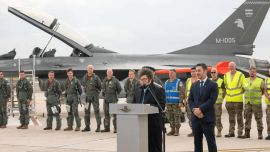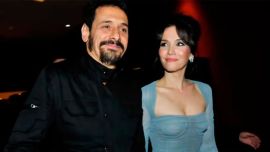Almost by definition, political acts are measured on the basis of whether they add to or subtract from an overall strategy that is directly tied to an agent’s capacity to maintain or exert power. The upcoming G20 Leaders Summit in Buenos Aires will be no different, as the relative costs and benefits for Mauricio Macri are tallied. On the face of it, Argentina’s president has a lot more to lose as he hosts the likes of Donald Trump and Xi Jinping, with the domestic economy in the midst of a painful economic crisis and the global agenda more focused on how to deal with protectionism than on delivering investments to developing countries. At the macro level, these events have a limited capacity to generate meaningful policy decisions and are generally dominated by the latest conflict between superpowers, in this case the ménage à trois composed of the United States, Russia, and China. For secondary players like Argentina, local journalists generally end up analyzing G20 summits in terms of a leader’s popularity, measured by the number of bilateral meetings with major powers and the capacity to get a few lines in the final comuniqué that states the country’s interests.
This will be Macri’s third G20 summit, having had a successful outing in 2017 in Hamburg and another in 2016 in Hangzhou, China. With Trump’s debut, last year’s summit was marked by the US president’s decision to withdraw from the Paris Agreement on climate change, causing widespread criticism. Macri’s biggest moment was arguably when he was invited on stage by Shakira at the Global Citizen Festival, where he joked with the Colombian superstar. A widely anticipated bilateral meeting with British Prime Minister Theresa May was cancelled at the last second, while the president did meet personally with France’s Emmanuel Macron, Singapore’s Lee Hsien Loong and India’s Narendra Modi. Despite May’s snub, Macri’s diplomatic objectives were mainly met, exhibiting Argentina’s commitment with international integration, while displaying moderately good macroeconomic figures that should begin to attract elusive foreign direct investment.
The previous year, in Hangzhou, was even better for Macri. While the summit was underpinned by the Syrian civil war and recent attacks using chemical weapons, Macri managed to hold bilaterals with China’s Xi Jinping and Russia’s Vladimir Putin, whom he wasn’t able to impress with a football joke referring to the 2018 World Cup. With then-foreign minister Susana Malcorra vying to become secretary-general of the United Nations, Argentina was finally leaving behind more than a decade of isolationism under Néstor Kirchner and Cristina Fernández de Kirchner, as Macri was hailed as the defeater of Latin American populism.
Indeed, compared with Cristina’s performances, Macri is in another league. In 2015, Economy Minister Axel Kicillof led the delegation to Antalya, Turkey, flanked by Foreign Minister Héctor Timerman and Planning Minister Julio De Vido, as the president decided to stay in Buenos Aires to monitor the presidential elections. Kicillof complained about ‘vulture funds’ and the issue of sovereign debt restructuring, blaming the world for Argentina’s economic isolation. The previous year, in Brisbane, Australia, Kicillof had again stood in for Cristina, who had been diagnosed with an irritated colon, to again moan about New York City hedge funds giving Argentina a hard time in US courts. The former president and current senator’s last appearance at a G20 summit was actually back in 2013 in St. Petersburg, where she unsuccessfully sought a meeting with Barack Obama... to whine about Paul Singer and the vulture funds. She was received by Putin.
In great part, the isolation of the Kirchnerite years was self-inflicted, as Argentina’s 2001 default and successive legal conflict with the late Judge Thomas Griesa put it at odds with the US, while the tough stance on the Malvinas (Falkland) Islands put the country in conflict with the United Kingdom, both permanent members of the powerful UN Security Council. Cristina’s Argentina gravitated toward the so-called ‘Bolivarianism’ of Hugo Chávez — who lent financing at usurious interest rates — as well as Putin’s Russia, Communist China and even Iran, as evidenced by the infamous Memorandum of Understanding that the late special prosecutor Alberto Nisman used to accuse the former president of high treason. Cristina’s position wasn’t ideological, she was effectively cut out of international debt markets which are dominated by Western capitalism.
The unprecedented US$50-billion standby loan approved by the International Monetary Fund (IMF) for Argentina (which was later increased), in the heat of a spiralling currency crisis, is a first indication that Macri’s decision to open up to the world has delivered benefits. Whatever one may think about the IMF, at the time Macri’s economic team decided it needed the emergency funds and the US-controlled institution responded in record time. On the flip side, Argentina’s economic fragilities pushed it into a corner, after international debt financing dried up, meaning the “downpour of dollars” that Macri promised early into his presidency never materialised. Thus, while Macri has played ball by settling with holdout creditors and opening up the economy, international investors haven’t been convinced he can pull through.
From a political standpoint, there’s little more the Macri presidency can gain from hosting the G20 summit. He already counts with the support of major Western powers, as evidenced by the confirmed assistance of every major leader, and of both Russia and China. He will continue to improve on the bilateral relationship with the United Kingdom (Theresa May’s visit will be the first of an acting Prime Minister to Buenos Aires since the war in 1982), strengthen ties with other centre-right leaders of Latin American countries like Chile’s Sebastian Piñera and Brazilian President-elect Jair Bolsonaro (if he decides to come), and continue to court the OECD club of rich countries to accept Argentina.
While all of those are advantageous for Argentina, the real challenge for Macri will be to ensure things go smoothly. It is troubling to see that in the past several days, air transport communications were intercepted by an amateur pilot. Unprepared anarchists have sowed fear by planting a series of homemade bombs — one which went off as the perpetrator was taking a selfie — and police arrested two people accused of being part of Hezbollah. All of this in the context of a massive 20,000-officer strong security operation commanded by Security Minister Patricia Bullrich, who recently indicated people should carry guns if they so pleased. Anti-globalisation protests will inevitably take place, and Bullirch’s recent track record suggests things could get ugly.



















Comments